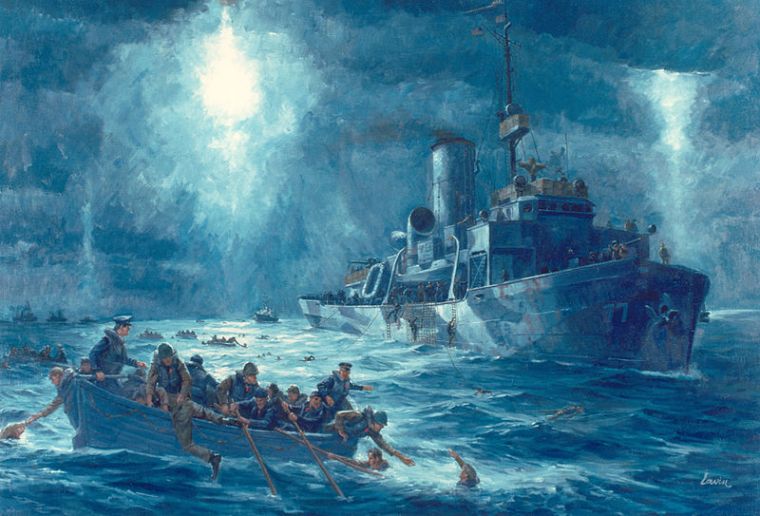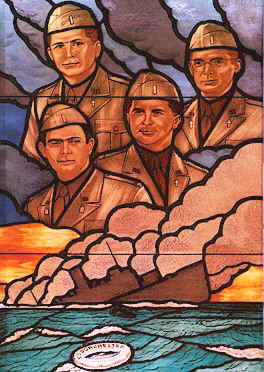American Heroes: The Incredible Sacrifice Of The Four Chaplains

Today is Four Chaplains Day: an occasion which looks back to the incredible courage of four men who, in the face of disaster, gave up their lives to save others. The four chaplains are symbol of remarkable, faith-inspired leadership and self-sacrifice, and their legacy continues to move many today. What is their story?
When tragedy strikes
George Lansing Fox, Alexander David Goode, Clark Vandersall Poling and John Patrick Washington were four friends and fellow chaplains in the US army. Fox was a Methodist minister, Goode a Reform Rabbi, Washington a Roman Catholic priest and Poling a minister in the Reformed Church of America. They boarded the SS Dorchester, an originally civilian vessel adapted for military service as a troop transport, on January 23, 1943, during World War II. The ship carried the chaplains and about 900 military personnel, and was en route to Greenland.
The Dorchester had been on high alert, with its Captain Hans J Danielsen wary of German U-boat submarines that were monitoring the sea lanes. On February 3, 1943, at 12.55 am, disaster struck, and Dorchester was torpedoed by the German submarine U-223, just off Newfoundland in the North Altantic Ocean.
The torpedo strike eliminated the ship's electrical system, leaving the crew, many of whom were trapped below deck, lost in darkness. Amid this chaos, Fox, Goode, Vandersall and Washington stepped up and sought to calm the men, help the wounded, and lead an orderly evacuation.
One survivor, Private William B Bednar, had found himself in oil-covered water surrounded by dead bodies and destruction. "I could hear men crying, pleading, praying," Bednar said. "I could also hear the chaplains preaching courage. Their voices were the only thing that kept me going."
"Witnesses of that terrible night remember hearing the four men offer prayers for the dying and encouragement for those who would live," says Wyatt R Fox, son of George Fox.
No greater love than this
When most of the men were topside, the chaplains opened a storage locker to get life jackets for the men. When it became clear that there weren't enough life jackets, the chaplains each removed theirs and gave them to four frightened men. In doing so they sacrificed any hope of their own survival, but gave hope to others.
"It was the finest thing I have seen or hope to see this side of heaven," said John Ladd, a witness of the moment.
As the ship sunk, survivors who made it to lifeboats looked back to see the four-chaplains on Dorchester, with arms linked, praying for the safety of the men and singing hymns in the face of death. They were never seen again.
A profound legacy

The disaster on the Dorchesterwas still a tragedy: only 230 of the 904 men on board survived. Many died of hypothermia in the water, even those with life jackets. Nonetheless, the remarkable courage of the chaplains stands out. Their role was to witness and serve the men they were with, and they did that with every last fibre of their being.
The chaplains were posthumously awarded the Purple Heart, the Distinguished Service Cross, and in 1960 a new medal was created and awarded in their honour, the Four Chaplain's Medal. In 1988, February 3 was established by Congress to be recognised as Four Chaplain's Day.
The Four Chaplain's Memorial Foundation website gives this tribute:
"The altruistic action of the four chaplains constitutes one of the purest spiritual and ethical acts a person can make. When giving their life jackets, Rabbi Goode did not call out for a Jew; Father Washington did not call out for a Catholic; nor did the Reverends Fox and Poling call out for a Protestant. They simply gave their life jackets to the next man in line."
The chaplains are also known as the "Immortal Chaplains". They died a tragic death, but their legacy of courage in the face of crisis, and profound self sacrifice, is one that can never die.











